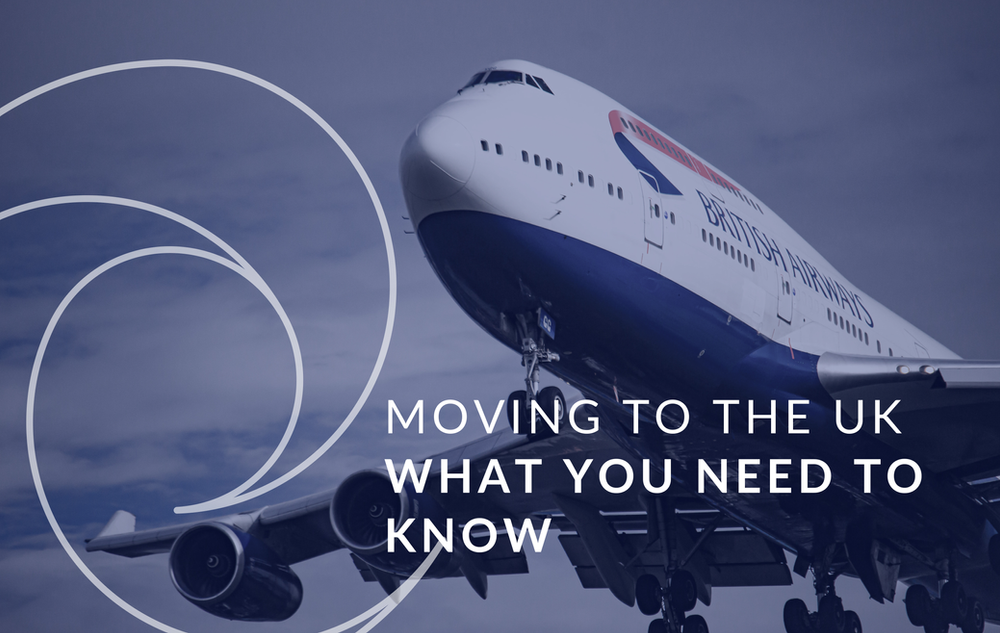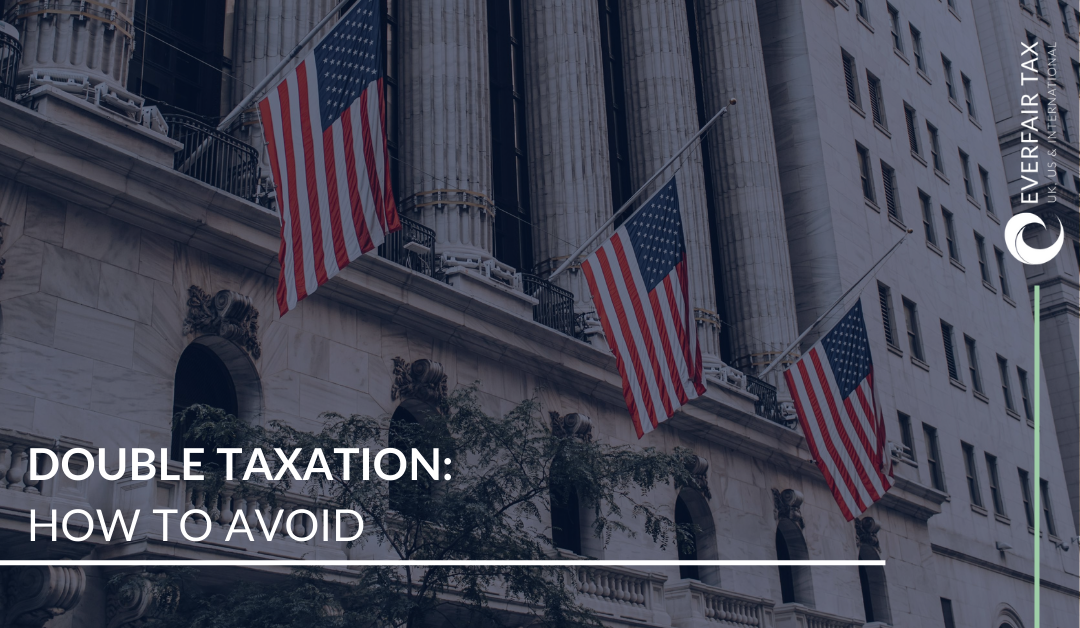Tax when arriving in the UK
10 March 2021
The UK Statutory Residence Test, and other important things to know
For anyone arriving in the UK, a key piece of information is to understand the point at which they would be considered tax resident in the UK, and therefore when their liability to UK income and capital gains tax will begin.

You can read the full article now, or download the PDF version for free below.
Since 2013 the UK has had a more formal test included within its legislation to determine when an individual will become a resident in the UK for tax purposes.
It often takes those moving to the UK by surprise that tax residency is determined entirely independently from an individual’s immigration status.
UK Tax Residence & the Statutory Residence Test
The test for UK tax residence is known as the Statutory Residence Test (SRT). The SRT has three parts:
- Rules under which an individual will automatically be considered UK tax resident
- Rules under which they will automatically be considered non-UK resident and;
- Then an effective tie breaker test known as the Sufficient Ties Test.
When are you considered a UK Resident?
An individual will be considered automatically a UK resident if they spend more than 183 days in the UK, have their only or main home in the UK or work full time in the UK. The concept of having an ‘only’ or ‘main’ home in the UK, or ‘working full time in the UK’ are then defined further.
An individual who has not previously been a UK resident and is spending time in the UK for the first time, will automatically continue to be a non-UK resident if they spend 45 days or less in the UK or continue to have a full-time job outside the UK and spend 90 or fewer days in the UK with 30 or fewer of these being work days. Again, full-time work outside the UK and what counts as a work day for this purpose are further explained in the rules.
If an individual doesn’t meet either the automatic UK residence or non UK residence tests, then their residence status will be determined by the Sufficient Ties Test.
The Sufficient Ties Test looks at a balance of:
- physical days of presence and
- four relevant connections to the UK
- being whether you have spent more than 90 days in the UK in either of the previous two tax years;
- whether you have worked in the UK for more than 40 days in the tax year;
- whether you have accommodation available to you in the UK and;
- whether you have a spouse or minor child who is resident in the UK (known as the family tie)
As with the other tests, all these important concepts have further specific definitions which are included in the legislation and need to be considered.
Changes, given the Covid-19 Global Pandemic
In response to the current movement restrictions across the globe in the wake of the Coronavirus pandemic, HMRC have released additional SRT guidelines, to work in conjunction with their existing guidance for exceptional circumstances. Up to a total of 60 days in the UK which are considered to result from exceptional circumstances do not count for certain parts of the SRT.
The additional circumstances for COVID-19 that are being considered as exceptional are:
- Quarantine or self-isolation from following public health guidance or advise from a health professional as a result of the virus
- Advice not to travel from the UK by recommendation from the Government as a result of the COVID-19 virus
- The inability to leave the UK as a result of international border closure
- If your employer requests that you return to the UK temporarily as a result of the virus
Although individuals may by necessity have to remain unexpectedly in the UK, whether days spent in the UK can be disregarded due to exceptional circumstances will always depend on the facts and circumstances of each individual case.
This may be relevant to a number of people arriving in the UK to delay the date of their residence in the UK, or prevent them from being considered resident earlier than would otherwise be the case.
What are the Split Year Rules?
Generally, an individual is either resident or non-resident for the whole of a UK tax year. But in certain circumstances, known as the split year rules, it is possible to divide the UK tax year into two parts:
- one that is prior to the point at which the individual triggers the condition which made them UK resident and
- the part following that point
Where these rules apply, UK tax residence (and therefore liability to UK tax) only arises in the later part of the year.
The split year provisions generally apply in circumstances when an individual becomes resident because they have taken up a full-time job in the UK or are accompanying someone who has a full-time job in the UK or when someone acquires a home in the UK.
It is obviously very important to establish whether you are entitled to benefit from these rules on arrival in the UK, as this may also help line up your tax position in the UK with your tax position in the country you are moving from.
This can prevent problems arising, from being taxable for a period of time in both countries, and needing to rely on tax treaties to avoid double taxation.
Tax, for UK Residents
The UK operates a system of independent taxation, with individuals having their own residence status, having their own entitlement to annual allowances and each being responsible for any taxation in respect of their own income and capital gain.
This means that situations can arise where one spouse is resident and the other is not, especially where the move is for work reasons for one spouse, and there is children’s education to consider. This can be an advantage where it does occur and present more planning opportunities.
Tax, for non-UK Residents & Remittance
For an international individual, whose usual home is not in the UK (what is referred to as being non-UK domiciled under UK tax rules), they may be able to benefit from specific tax rules in respect of their non UK income and gains, known as the remittance basis. Under these rules, the foreign income and gains are only subject to UK tax if brought to or used in the UK.
Those non-domiciled individuals with jobs that still require them to work partly overseas after arriving in the UK, can also benefit from a further advantage under the remittance basis.
How does the Remittance Basis work?
Under what are known as ‘the overseas workdays relief rules’, non-uk domicilied individuals can pay tax on just the proportion of their salary which relates to UK working time. It just needs to be paid into a specific, non-UK bank account, and they must keep the proportion of their salary which relates to non UK working time outside the UK. This relief is available for the first three years of residence in the UK. There are detailed rules to follow when claiming this relief, so advice should be sought on an individual’s particular circumstances.
The cost of claiming the remittance basis increases over time with it just resulting in a loss of tax free allowances for the first seven years, then increasing to £30,000 per annum and to £60,000 after 12 years. After 15 years of residence, the remittance basis cannot be claimed.
All the rules outlined above count part years of residence in the time limits so timing of becoming resident in the UK can often be very important.
Another key point: to benefit fully from the remittance basis (and the fact that the UK will not tax amounts of money that an individual had accumulated before becoming UK resident…), it is important to have bank accounts set up correctly and plan in advance how you’ll pay for UK living costs as efficiently as possible. It also helps avoid what are known as the mixed fund rules that apply to accounts with different sources of income where you are considered to withdraw the least tax efficient amounts first.
Finally, it is worth being aware that there is no increase for capital gains tax in the value of assets to their market value at the date of arrival. Capital gains tax will potentially be due on increases in value, from the original purchase price and for foreign assets take exchange rate movements into account.
In summary, to make the most of your move to the UK, the old adage forewarned is forearmed rings true – advance preparation is crucial.
This is our area of technical expertise, so we’re proactive in seeking new regulation changes, and knowing what’s on the horizon. Everyone we work with has different goals. We honour your unique starting point, proudly offering a truly personal and adaptable service for you.
For advise and to see how we can add value to your move to the UK, please contact us at Everfair Tax.
News
For updates featuring tax changes, reminders for deadlines, pointers on how to maximise your accounts, and information on Everfair Tax and their activities: you need look no further than our news & resources pages.
View MoreContact Us
Need some UK, US or International advice?
Contact us now.
Weybridge Office
Ground Floor, 37a Church Street
Weybridge, Surrey KT13 8DG
Tel: 01932 320 800
London Office
40 Gracechurch Street,
London, EC3V 0BT
Tel: 020 3949 5999
Email: info@everfairtax.co.uk

